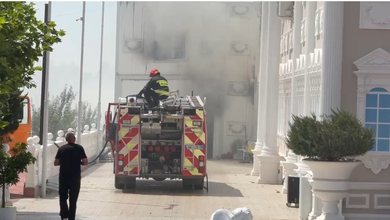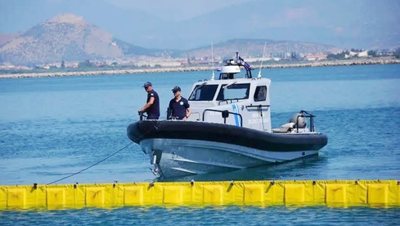
In Albania, at the end of 2024, there were 11.9 thousand foreigners who had received a residence permit to work, according to data recently published by INSTAT.
Although the number of foreign workers with work permits or certificates has almost doubled compared to 2018, foreigners have managed to fill only a corner of the gap left by the departure of Albanians into emigration. Foreign employees in 2024 will constitute only 2% of the total contributing employees in the private sector, where there are a total of about 560 thousand employees, according to INSTAT.
Even before the pandemic, the country began to feel a shortage of local labor, as a result of emigration, mainly of young people, and the gradual aging of the population. Many businesses tried to replace the gap created by the decline in the available local labor force by hiring foreigners. Initially, an attempt was made with workers from Asia, mainly Bangladesh. This scheme quickly failed, as they used Albania as a springboard to escape to other EU countries. The lack of professional qualifications was also worrying, as the foreigners employed in Albania turned out not to have done similar work.
Then, Nepalese workers were tried, mainly in the garment sector. Indians were another option, which was also tried in agriculture. The development of tourism put enterprises before the emergency of service workers. The newest nationality that is being hired recently is Africa.
Data by sector is available for 2023. In first place for work permits is the accommodation and food service sector with about 20% of the total, about 12% in construction and 10% in the wholesale and retail trade sector, according to data from the National Employment and Skills Agency (AKPA).
"The scheme for bringing in foreign workers continues to be problematic. Many of them are using Albania as a springboard to Greece for employment on the islands during the tourist season, where salaries for professional waiters and bartenders have reached up to 4 thousand euros," according to the President of the Association of Bars and Restaurants Enri Jahaj. Also, some intend to leave for European Union countries, to join their families.
Another major challenge, according to him, is the lack of professional qualifications. “Although some of the foreign workers come with experience from countries with developed tourism, such as Dubai, they often turn out to be untrained for the service standards in Albania. Most have performed auxiliary work and are not prepared for professional positions in the service sector in bars and restaurants,” emphasizes Mr. Jahaj.
So far, the most loyal foreign workers to their jobs in Albania are Filipinos. "In many bars and restaurants in the capital, there continues to be a greater consistency with employees from the Philippines. They are more correct towards the employment contract, which is related to the culture of discipline at work and experience in the tourism sector in the country they come from."
According to Erald Pashaj, Executive Director of "EPPC Albania & Kosova", one of the largest consulting companies in the field of human resources, the number of foreign employees in Albania is expected to continue to increase in the coming years, as a result of the further development of the tourism sector.
Although many of them continue to see Albania as a transit country to move further towards the European Union countries, Mr. Pashaj emphasizes that this growth trend will also be accompanied by challenges, including the need for effective policies that enable the social and professional integration of foreigners into the Albanian labor market./ MONITOR






















